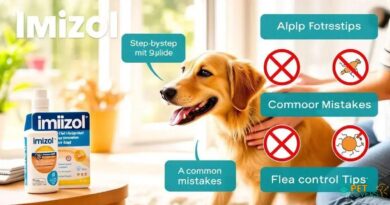What is Natural fissures
What is Natural Fissures?
Natural fissures refer to the cracks or splits that occur in various materials, including geological formations, wood, and even in the context of animal health. In the realm of canine care, understanding what natural fissures are can help pet owners recognize potential health issues in their dogs, particularly concerning their skin and paws.
Understanding the Causes of Natural Fissures
Natural fissures can arise from a variety of factors. In dogs, these fissures may be caused by environmental conditions, such as extreme temperatures, humidity, or dryness. Additionally, underlying health issues, such as allergies or skin infections, can exacerbate the formation of fissures. Recognizing these causes is essential for effective prevention and treatment.
Common Types of Natural Fissures in Dogs
When discussing natural fissures in dogs, it is important to identify the common types that may occur. These can include paw pad fissures, which are cracks in the pads of a dog’s feet, and skin fissures, which can appear on various parts of the body. Each type requires specific attention and care to ensure the dog’s comfort and health.
Symptoms Associated with Natural Fissures
Symptoms of natural fissures in dogs can vary depending on the location and severity of the fissure. Common signs include limping, licking or chewing at the affected area, and visible cracks or splits in the skin or pads. Pet owners should be vigilant in observing their dogs for these symptoms to address any issues promptly.
Preventing Natural Fissures in Dogs
Preventing natural fissures involves a combination of proper care and environmental management. Regular grooming, moisturizing paw pads, and providing a balanced diet rich in essential fatty acids can help maintain skin health. Additionally, avoiding exposure to extreme weather conditions can significantly reduce the risk of fissures developing.
Treating Natural Fissures in Dogs
Treatment for natural fissures will depend on the severity and underlying cause. Minor fissures may heal with home care, such as applying pet-safe moisturizers or ointments. However, more severe cases may require veterinary intervention, including prescription medications or specialized treatments to address any underlying health issues.
When to Consult a Veterinarian
It is crucial for pet owners to know when to seek veterinary advice regarding natural fissures. If a dog shows persistent signs of discomfort, if the fissures appear infected, or if there is no improvement with home care, a veterinarian should be consulted. Early intervention can prevent further complications and ensure the dog’s well-being.
The Role of Nutrition in Skin Health
Nutrition plays a vital role in maintaining a dog’s skin health and preventing natural fissures. A diet rich in omega-3 and omega-6 fatty acids can enhance skin hydration and elasticity. Additionally, ensuring that dogs receive adequate vitamins and minerals will support overall health, reducing the likelihood of fissures developing.
Natural Remedies for Natural Fissures
Many pet owners seek natural remedies to treat and prevent natural fissures in their dogs. Options such as coconut oil, aloe vera, and vitamin E oil can be beneficial for moisturizing and healing the skin. However, it is essential to consult with a veterinarian before trying any new treatments to ensure they are safe and effective for your dog.



